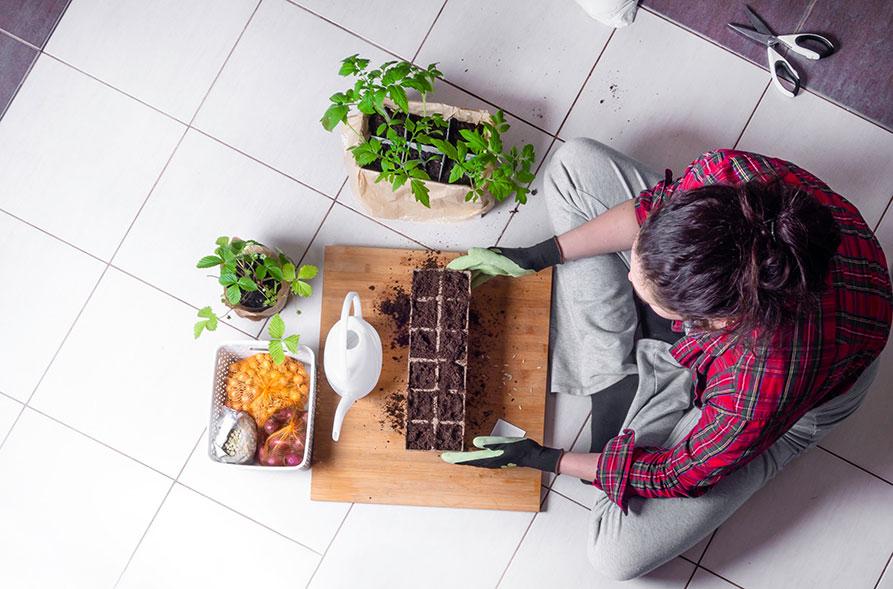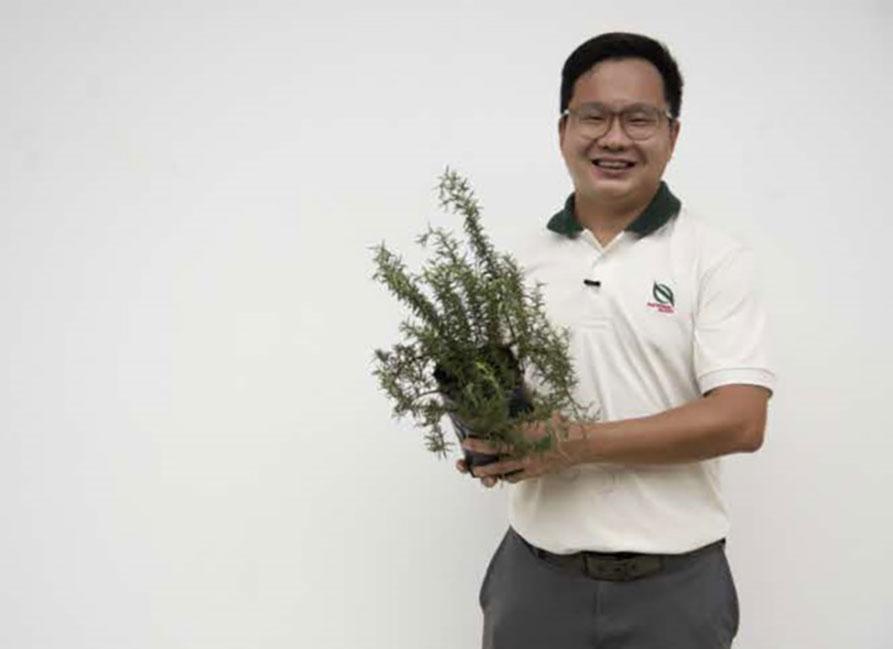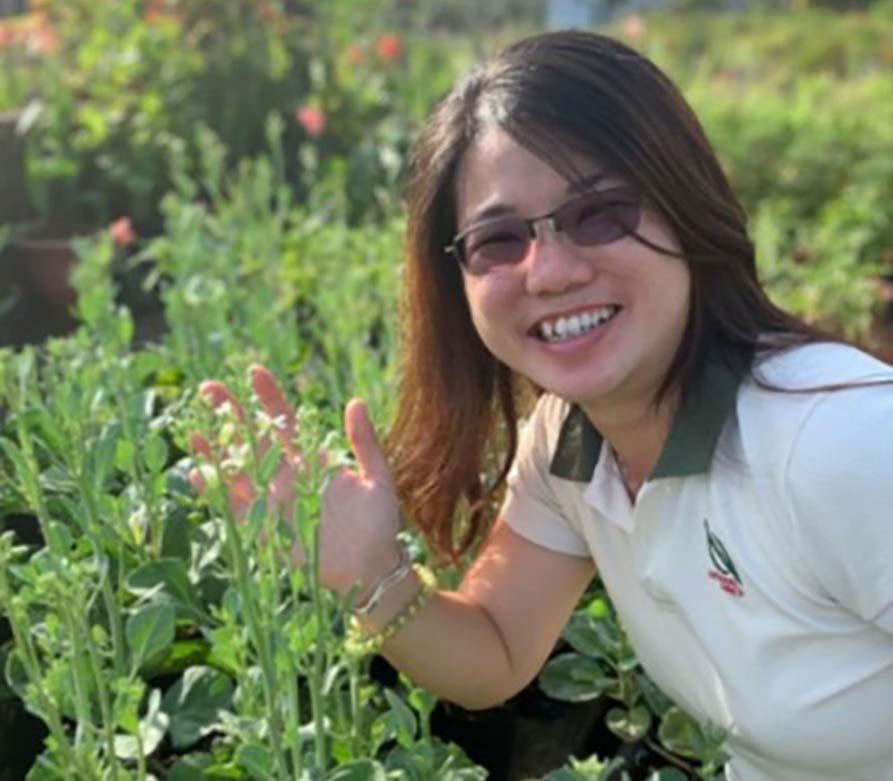Listen to this story
00:00
00:00
Interest in starting an edible garden at home has surged in recent months during the Covid-19 outbreak – perhaps the result of people spending more time at home or an increased awareness of the importance of food resilience.
The National Parks Board’s (NParks’) Gardening with Edibles programme, which sends registrants free seed packets to get them started, saw overwhelming response. So much so that NParks increased the number of packets distributed from 150,000 to 400,000!
The programme, supported by DBS Bank, aims to encourage people grow their own edible plants to improve community well-being and strengthen Singapore’s food resilience.
To help aspiring gardeners along their journey, we sought the advice of experts – Dr Wilson Wong, Deputy Director, Jurong Lake Gardens, and Ms Vicky Lim, Manager, Nursery Management, NParks – to answer questions sent in by our colleagues at DBS.
Questions to answer before you start planting
What edible plants are the easiest to grow?
For leafy vegetables, opt for kang kong, kailan and chye sim. For fruited vegetables, opt for brinjal and long bean, as they tend to be hardier. All these can be grown from seeds.
Some other vegetables that can be harvested continuously and grown from cuttings that can be bought from the market or plants from local nurseries are:
-
Kang kong
-
Ceylon spinach
-
Cekur manis
-
Sweet potato
-
Brazilian spinach
Will avocado seeds grow in Singapore’s climate?
Avocados can grow in Singapore, however only certain varieties, such as the smooth skinned varieties that are commonly grown in Indonesia and others that are acclimatised to the climate, will be able to flower and set fruit. Do note that the avocado is a tree and might need adequate soil depth (at least 1m) for it to be grown optimally. You may want to look for grafted specimens so they can fruit with a small tree size.
Growing via soil vs hydroponics? What are the pros and cons?
It would depend largely on the set up of each method. Some gardeners have successfully grown plants hydroponically using simple materials such as expanded clay pallets with nutrient solution.
Hydroponics
1. May require sophisticated equipment setup including drip and pump system
2. More control over precise nutrient fertilisers which may help with shortening of harvest
3. Reduced exposure to soil-based pests due to the use of soilless culture
4. More suitable for leafy vegetables due to space constrain
Soil
1. Does not require any equipment for setup except a piece of land to grow the edibles
2. Plants may take longer to mature as soil-based nutrients are released slowly for uptake
3. Exposure to more avenues of pest attacks such as soil borne diseases
4. Suitable for any edibles especially fruited vegetables
Growing your seedlings
How long does it take for seedlings to grow to ready-for-harvest vegetables?
Most leafy vegetables will take about 40 to 45 days to be ready for harvest.
What are the best and quickest methods to germinate seeds? Should seeds be soaked for better germination rate?
One of the preferred methods of germinating seeds is to sow them in equal parts of Perlite, Vermiculite and Peat Moss.
Soaking seeds is up to the individual’s preference. Most seeds can be soaked for an hour or so to allow the seeds to imbibe water and increase the germination rate; however, general rule of thumb is not to soak the seeds for more than 24 hours.

Keeping your plants healthy
What if my apartment does not get “full sun”?
You may wish to try using grow lights for plants as they provide blue and red spectrum of light for optimal plant growth.
When is the best time to water the plant? How can you tell when you are over or under watering?
Early mornings are the best time, as this will allow the plant to fully absorb the water required. It is not recommended to water the plant during hot afternoons (high evaporation rate) or nights (low evaporation rate means that the plant will be easily prone to fungal attack).
To test the soil moisture, you can either poke a wooden chopstick or your finger into the soil (about 3cm deep) and feel if the soil is dry to touch. Some people use water from washing rice to water plants. Are there any nutritional benefits in that water for plants?
Water from washing rice contains very minute amount of minerals and should not be used as a replacement to fertilise the plants. Starch from the rice water might also make the soil harder with prolonged application and may encourage fungal and bacterial growth.
How do I know when it is time to repot?
It’s time to repot the plant when you observe:
-
Roots growing through the drainage holes
-
Plants tend to dry out quickly and require more watering than usual.
Is fertiliser really necessary?
All plants, especially edibles, require nutrients to ensure optimal growth. Providing the plants with fertiliser will replenish the nutrients lost in soil due to uptake and run-off. Without fertiliser, plants may lack the essential nutrients to grow healthily and may be more prone to pest attacks.
Get to know the experts!

Dr Wilson Wong is an accomplished horticulturist and scientist with more than 20 years’ experience growing plants since his interest sparked in Primary School. He is currently leading a team that curates the landscape and programmes at the newly opened Jurong Lake Gardens. As an avid gardener of edible plants, Wilson has experimented on growing a wide variety of edibles plants ranging from the vegetables, all the way to trees that bear edible fruits. He has given numerous well-received talks on horticulture, and is a familiar name to many as he helms a regular gardening column “Root Awakening” in The Straits Times every Saturday, answering questions on gardening.

Ms Vicky Lim oversees the edible plant collection of the NParks Pasir Panjang Nursery, which supplies plants to all parts of Singapore. As the manager, Vicky propagates various edible plants for planting in gardens and parks. With more than 20 years’ experience in gardening, Vicky has honed her horticultural skills and conducted various training courses for public and NParks staff. Part of Vicky’s interest and roles in the nursery includes sourcing various new and interesting plants to add to the vibrancy of the landscape in Singapore.
